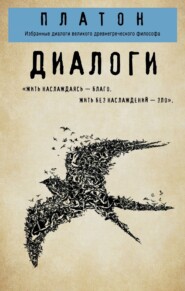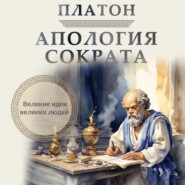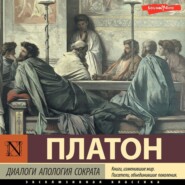По всем вопросам обращайтесь на: info@litportal.ru
(©) 2003-2024.
✖
Euthydemus
Настройки чтения
Размер шрифта
Высота строк
Поля
But how, he said, by reason of one thing being present with another, will one thing be another?
Is that your difficulty? I said. For I was beginning to imitate their skill, on which my heart was set.
Of course, he replied, I and all the world are in a difficulty about the non-existent.
What do you mean, Dionysodorus? I said. Is not the honourable honourable and the base base?
That, he said, is as I please.
And do you please?
Yes, he said.
And you will admit that the same is the same, and the other other; for surely the other is not the same; I should imagine that even a child will hardly deny the other to be other. But I think, Dionysodorus, that you must have intentionally missed the last question; for in general you and your brother seem to me to be good workmen in your own department, and to do the dialectician's business excellently well.
What, said he, is the business of a good workman? tell me, in the first place, whose business is hammering?
The smith's.
And whose the making of pots?
The potter's.
And who has to kill and skin and mince and boil and roast?
The cook, I said.
And if a man does his business he does rightly?
Certainly.
And the business of the cook is to cut up and skin; you have admitted that?
Yes, I have admitted that, but you must not be too hard upon me.
Then if some one were to kill, mince, boil, roast the cook, he would do his business, and if he were to hammer the smith, and make a pot of the potter, he would do their business.
Poseidon, I said, this is the crown of wisdom; can I ever hope to have such wisdom of my own?
And would you be able, Socrates, to recognize this wisdom when it has become your own?
Certainly, I said, if you will allow me.
What, he said, do you think that you know what is your own?
Yes, I do, subject to your correction; for you are the bottom, and Euthydemus is the top, of all my wisdom.
Is not that which you would deem your own, he said, that which you have in your own power, and which you are able to use as you would desire, for example, an ox or a sheep – would you not think that which you could sell and give and sacrifice to any god whom you pleased, to be your own, and that which you could not give or sell or sacrifice you would think not to be in your own power?
Yes, I said (for I was certain that something good would come out of the questions, which I was impatient to hear); yes, such things, and such things only are mine.
Yes, he said, and you would mean by animals living beings?
Yes, I said.
You agree then, that those animals only are yours with which you have the power to do all these things which I was just naming?
I agree.
Then, after a pause, in which he seemed to be lost in the contemplation of something great, he said: Tell me, Socrates, have you an ancestral Zeus? Here, anticipating the final move, like a person caught in a net, who gives a desperate twist that he may get away, I said: No, Dionysodorus, I have not.
What a miserable man you must be then, he said; you are not an Athenian at all if you have no ancestral gods or temples, or any other mark of gentility.
Nay, Dionysodorus, I said, do not be rough; good words, if you please; in the way of religion I have altars and temples, domestic and ancestral, and all that other Athenians have.
And have not other Athenians, he said, an ancestral Zeus?
That name, I said, is not to be found among the Ionians, whether colonists or citizens of Athens; an ancestral Apollo there is, who is the father of Ion, and a family Zeus, and a Zeus guardian of the phratry, and an Athene guardian of the phratry. But the name of ancestral Zeus is unknown to us.
No matter, said Dionysodorus, for you admit that you have Apollo, Zeus, and Athene.
Certainly, I said.
And they are your gods, he said.
Yes, I said, my lords and ancestors.
At any rate they are yours, he said, did you not admit that?
I did, I said; what is going to happen to me?
And are not these gods animals? for you admit that all things which have life are animals; and have not these gods life?
They have life, I said.
Then are they not animals?
They are animals, I said.
And you admitted that of animals those are yours which you could give away or sell or offer in sacrifice, as you pleased?
I did admit that, Euthydemus, and I have no way of escape.
Well then, said he, if you admit that Zeus and the other gods are yours, can you sell them or give them away or do what you will with them, as you would with other animals?
At this I was quite struck dumb, Crito, and lay prostrate. Ctesippus came to the rescue.
Bravo, Heracles, brave words, said he.

















